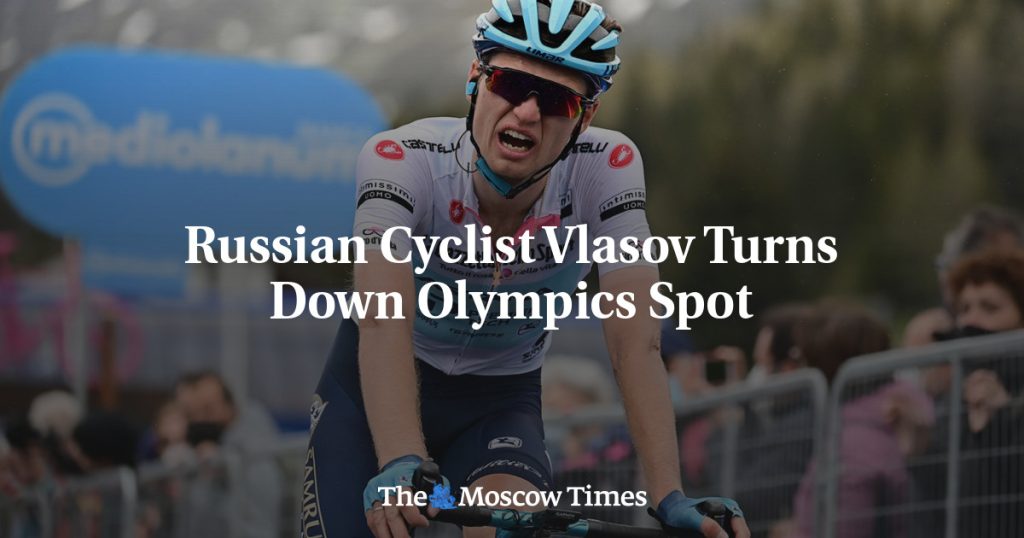Russian cyclist Alexander Vlasov has declined the opportunity to compete in the upcoming Olympic Games in Paris due to his busy schedule. Despite being approved by the International Olympic Committee to participate under a neutral flag, Vlasov has opted out of the event. The head of the Russian Cycling Federation, Vyacheslav Ekimov, cited the unsuitability of the Paris track for Vlasov as well as his packed calendar as reasons for his decision. Vlasov, who has previously won the 2022 Tour of Romandie and came fourth in the 2021 Giro d’Italia, was one of 14 Russian athletes approved by the IOC to compete in the games.
The IOC suspended Russia from the 2024 Games but allowed its athletes to compete as neutrals, provided they did not actively support the Kremlin’s actions in Ukraine. The athletes had to qualify for the Games and undergo two checks to ensure they had no links to the Russian military or the invasion of Ukraine. More than half of the Russian athletes approved for the Paris Games were wrestlers, with others in trampoline gymnastics and road cycling. The IOC will continue updating its list of eligible athletes as other sports complete their qualifying competitions.
The Russian government’s sports minister has stated that Moscow should not boycott the Paris Olympics, emphasizing the importance of Russian athletes’ participation in international competitions. The head of the Russian Cycling Federation has expressed his support for Russian athletes competing in the Games despite challenges such as Vlasov’s decision to withdraw due to scheduling conflicts. The IOC’s decision to allow Russian athletes to compete under neutral flags reflects the organization’s efforts to separate sports from political tensions.
The current environment for Russian athletes participating in international competitions has been influenced by geopolitical events, with the conflict in Ukraine impacting their eligibility and participation in events like the Olympic Games. The role of sports in diplomacy and international relations has come under scrutiny, with questions arising about the appropriate response to political tensions affecting athletes’ opportunities to compete on the world stage. The IOC’s criteria for allowing Russian athletes to compete as neutrals aim to balance the principles of fair play with considerations of political neutrality.
As independent news outlets like The Moscow Times face challenges in Russia, calls for support to sustain critical journalism have emerged. The impact of government actions on media freedom and freedom of speech underscores the importance of supporting independent journalism worldwide. The need for accurate and unbiased reporting in the face of attempts to silence dissenting voices highlights the role of media in promoting transparency and accountability. By continuing to invest in open, independent journalism, individuals can support efforts to uphold democratic values and defend the freedom of the press.















